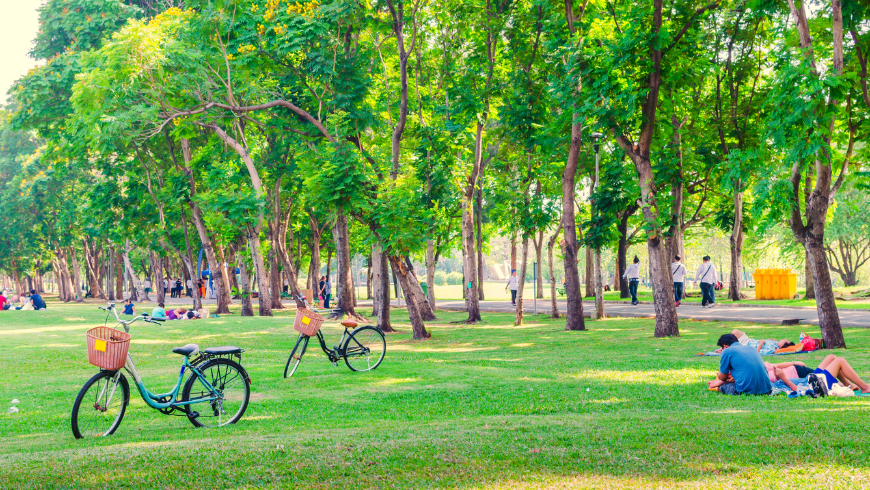Desire to travel but don’t feel confident about your budget? Explore our short travel guide with valuable tips, and stop postponing your most exciting first journey!
A common societal problem prevails: when you are young and have the energy to travel, you most likely don’t have enough money, and when you have money, you require more time or energy. However, the situation is constantly improving thanks to the more manageable logistics and modern apps. You can rent a picturesque apartment in seconds and find low-cost train tickets. Even the most responsible students can find money and resources for traveling – especially with the beautiful opportunity to free up schedules by delegating some assignments to trusty-friendly academic help services.
#1 Pick Up the Right Place!
The Earth is enormous, and there are a lot of unique places available out there. If you are a student and don’t have enough money, consider excluding Seychelles and Cyprus from your traveling list and find something less popular and expensive. There are dozens of small, mysterious, and stunningly beautiful places, and you may count on a decent chance that your budget journey will be better than a trip to one of the most popular destinations.
Consider additional factors when estimating your travel budget: for instance, a city break may cost more than a trekking excursion. How posh or rustic you want your travel experience to be will also affect the total cost; staying in a private hotel room will be more expensive, but couch surfing and hosteling will save you money.

#2 Enjoy Free Activities!
Looking around, you may find free and entertaining things to do in any city. Many free cultural attractions exist in most large cities, including art galleries, parks, festivals, walking tours, local markets, and performances. Locals (including hotel receptionists) are a goldmine of information on fun things to do, so strike up a conversation with some of the inhabitants. When searching for one-of-a-kind things to do, it’s worth checking such sources as:
- local publications,
- event websites,
- student portals,
- sites like TripAdvisor.
You can always consider spicing up your journey with some journaling and traveling writing prompts!

#3 Consider the Time
The place isn’t the only thing that matters – the time of the journey is also vital! There are popular seasons, and these seasons may vary depending on the precise location: by avoiding the most demanding timeframe, you may save a lot of money and a lot of nerves. As a student, you can afford a fairly flexible schedule, especially for short weekend-long trips. We recommend choosing several of the most appealing locations and researching the golden seasons for them: by planning your budget journey off-season, you will definitely be able to save money.
It all depends on when you’re visiting; however, some times of the year are cheaper than others. For instance, the months of January through March are among the most affordable for a trip to Japan. Not only will lodging, dining, transportation, and other essential expenditures be cheap, but the most popular attractions will also be far less crowded because tourism is at its lowest. You can make the most of your holiday by taking it easy and getting to know the local vibe.

#4 Use Different Hacks to Save Money
A significant portion of your vacation budget will go toward your transportation method, so consider whether you’d like to fly or take a train overseas. So, we recommend writing out your objectives and organizing your vacation around them (learn more about it by studying some writing tips). Now that you know what kind of summer vacation you want, it’s time to start the exciting part: looking into potential destinations and their prices.
You can look up the typical prices on Google to get a general idea of what products cost where you’re going. You should also research transportation expenditures, restaurant prices, sightseeing expenses, etc. If you’re planning a trip, you may get information about the typical daily expenditures in different destinations on sites like Lonely Planet, TripAdvisor, and budget travel blogs. You may also look on TikTok, where many travel bloggers post daily expenses and little money-saving tricks.

#5 Travel Off the Beaten Path
Locations right off the beaten path are often far more affordable than highly desirable ones. Look for accommodations in Oakland, where you can save around 11% on living expenses, rather than reserving 10 nights in the middle of San Francisco. With the Clipper Card, which can be loaded with an unlimited amount of credit and gives you access to all of San Francisco’s public transit, getting to the central city is both easy and inexpensive through Bay Area Rapid Transit.

#6 Always Keep Emergency Money
Once you plan for your anticipated expenditures, set aside some money for the unexpected; no matter how superior your planning is, a trip will always have chances and obstacles. Illnesses and injuries are prevalent in unfamiliar environments. Everything is possible, including flights not arriving, frauds, misplaced or stolen belongings, or hotel mix-ups. With the right amount of emergency savings, you can deal with these issues without going into serious debt. A few hundred dollars should be set aside, money that can be spent if necessary.

#7 Keep Calm and Travel!
And finally, remember to keep your head cool. Budget journeys can be slightly rougher, more exotic, and more adventurous than visiting five-star all-included hotels at first-class resorts. You will probably encounter exciting situations occasionally, make new connections among locals, and be challenged with the necessity of solving some unusual problems. And, God, isn’t that exciting? However, we recommend always remembering common sense, not diving into dubious adventures, having at least three backup plans, and traveling with friends! Of course, it would be great to remember to check out some creative travel gift ideas!

Author Bio: Johannes Helmold, I’ve been working as an expert writer and editor at Textero for more than five years, and I’m just happy to help students handle their academic assignments.
